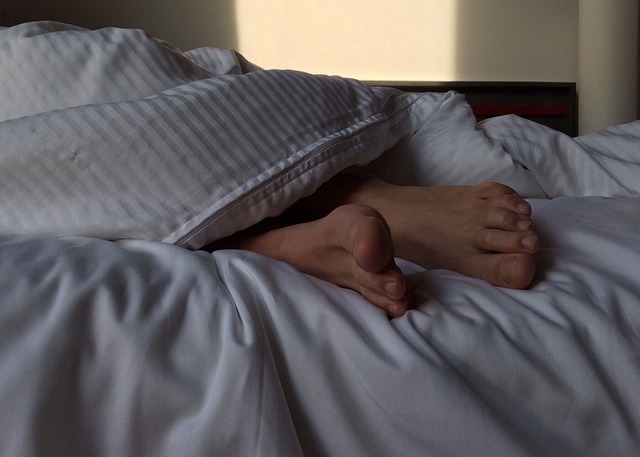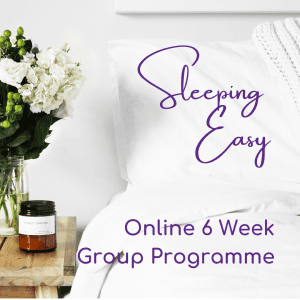Insomnia (sleeplessness, having trouble falling asleep or staying asleep)
Insomnia can be having difficulty falling asleep even when exhausted. Or staying asleep, you get off to sleep just fine but once woken you can’t get back to sleep. Stay with me and I will give you 9 ways to quieten your mind to enable you to fall asleep.
If you suffer from insomnia, have a job that involves shift work or have a newborn baby then you will be an expert in having a poor night’s sleep. There are 5 million sufferers in the UK and 50-70 million in the USA who cannot get a decent night’s sleep. 20% of these are getting less than 6 hours of sleep a night.
Experiencing sleep problems can mean you are prone to more depression, anxiety and poorer health overall. However, on the other hand, lack of sleep can cause these symptoms. If you add in diabetes, obesity and cardiac problems you can understand why this is a concern.
Please make sure you have spoken to your doctor to eliminate any physical causes. You may be prescribed medicine to help you sleep, this might be effective but it is important to find the underlying cause and remedy it.
Sleep it is as important as air, food and water! This is my first blog in a series that will help you to make changes to achieve good quality regular sleep pattern so that you wake alert and refreshed. This blog is about using your mind to help you doze off. The next few blogs will focus on what you can do with regard to lifestyle and environment, your body, how to go back to sleep if you wake during the night and finally fatigue when you get plenty of sleep but feel shattered regardless.

So what are the solutions to sleeplessness?
Here are my suggestions of 9 strategies that you can do to influence your mind to ensure you get high calibre sleep and overcome insomnia once and for all.
Check your belief, are you really deprived of sleep?
Sometimes you can believe that you are sleep deprived because you are not getting eight hours sleep a night or as much sleep as you used to. However, not everyone needs eight hours sleep – Margaret Thatcher famously was said to need only four hours. As you mature you may find that you need less sleep.
If you function pretty well during the day, do consider that perhaps you are getting enough sleep. If this is the case, you can stop lying in bed worrying about not getting enough sleep and enjoy that fact that you get more hours in the day than others (something I would love to have).
Breathing exercises
One of the quickest ways to lower stress and relax is to breathe deeply. You can practice this at any time of the day. When practised in bed it can begin to set us up for breathe when we are asleep. Try following these simple steps will allow you to reduce your stress and anxiety in seconds and allow yourself to drift off easily and gently.
- Get comfortable
- Place one hand on your chest and one hand on your tummy
- Take a deep breath in, taking about 7 seconds – the hand on your tummy should rise and the hand on your chest should stay still
- Hold your breath for 3 seconds
- Breathe out, making the breath last about 11 seconds
- Option a) if in bed just continue gently focusing on your breath until it settles into your own rhythm OR
- Option b) when practised regularly during the day we teach ourselves to become relaxed and find sleeping easier. Run through this exercise once a day sitting in a chair for ten breath cycles.
Self-soothing
Often by relaxing more throughout the day you will get better sleep at night. If you find yourself getting anxious or worked up about many things throughout the day you will no doubt carry these thoughts right through until bedtime.
During the day practice self-soothing. This means noticing when you are becoming stressed and saying to yourself ‘Stop, relax, soften’. As you do this, relax your body (drop your shoulders) and face (release your jaw), and take several deep breaths as described above (you can do this where ever you are and whenever you need to). In your mind’s eye picture something that you find pleasant and take a mental holiday – for example, someone you love, or your favourite place in nature, or a good memory. You’ll be delighted at how quickly you can calm yourself.
Worrying about not sleeping
Sometimes the cause of insomnia can be because you are worried about poor sleep. Do you tell yourself that you won’t sleep? Do you find yourself telling others that you won’t sleep? Do you lay in bed worrying about not being able to sleep the moment you’re in bed? If this is the case it can be your belief about the lack of sleep that is the problem and keeping you awake.
Situation = Lying awake
Thoughts = I’ll never sleep – I’ll be exhausted in the morning – I won’t have any energy – I can’t cope – I’m going to be miserable tomorrow
Outcome = Worry even more and stay awake longer
Does this sound like you? If so then I think you know that these thoughts (beliefs) aren’t true because you have coped before after a sleepless night. Here are more useful and helpful thoughts that are much more likely to give you a good night’s sleep.
Situation = Lying awake
Thoughts = I can’t sleep – I’ll get up and make some warm milk – I’ll read a bit of that novel/magazine/listen to my audio book/music (nothing exciting though) – I’ll go back to bed in a little while and I’ll do a relaxation technique (from this blog) to go back to sleep – Even if I don’t, I know I will manage, I’ve done it before
Outcome = More sleep
Future visualisation
When you’re in bed and comfortable, run through your next day (or a future event) in your mind. Take it moment by moment and be aware of the detail, the colours, the sounds, the feelings and any smells or tastes that you might experience. Imagine everything going wonderfully, just the way you’d want it to. All is well.
Background sounds
Rain, ocean waves, sounds from nature and the low rumble of a distant thunder storm are known to put a person to sleep. There are plenty of these available on the internet.
Strange as it sounds this is because your brain interprets these sounds as non-threatening and you can use them to block out other, more alarming noises.

One of the reasons why you might wake in the night could be because your brain perceives sounds from the house or outside as threats and wakens you. Having background soothing sounds that gradually rise and fall in volume prevent the noises startling you while asleep.
Listen to soft music with a beat slower than your heart. Something easy on the ear and quiet, make sure it doesn’t change into something upbeat partway through.
Do be aware that if you use your a mobile device the blue light and notifications can be disruptive to sleep and cause insomnia. More on this in my next blog.
Use a guided relaxation or meditation
Guided relaxation includes a number of techniques such as progressive muscle relaxation, guided imagery, self-hypnosis, and deep breathing exercises. Guided relaxation is no different to relaxing yourself. It is useful as there is someone else guiding and supporting you through it. In some ways it is similar to guided to meditations such as those that are available on the app headspace. Being guided into relaxation is particularly useful for beginners and to help you drift off to sleep as you don’t have to think about what you are doing you can just relax and just follow along.
If you would like to give this a try, you can download a free 20 minute guided relaxation by clicking here. It teaches you how to relax your muscles first by systematically tensing particular muscles and then you release the tension and noticing how your muscles feel when you relax them. It also includes guided imagery which can lower blood pressure, can help you manage pain and reduce to stress and anxiety, not to mention help you fall asleep.
Hypnotherapy
Sometimes insomnia begins because of a stressful event. It can continue even when the stress has been resolved. It’s also caused by worry, anxiety, stress and an overactive mind. Sometimes it can be because have developed the habit of not sleeping or associated going to bed with a state of not sleeping, it’s anchored.
Hypnosis for insomnia aims to communicate with habits created in the unconscious mind and suggest positive changes that break the negative patterns that have caused the problem.
When working with a therapist it is helpful to share with someone how you are feeling and what you think might be the cause. The hypnotherapist will tap into your unconscious mind to help discover what may have changed your sleep pattern. When the cause is found, personalised sessions can be designed and change begins.
You are also taught self-hypnosis, using this yourself at home will help you take what you’ve learnt with your therapist into your everyday life and help you gain control.
How many sessions will you require? Well this depends on the individual sometimes it might only be one visit whilst others may require more.
Talk yourself to sleep
There are many ways to talk yourself to sleep (counting sheep is just one!). Here is a couple that might work for you.
a) Using the alphabet
Get yourself comfortable and ready for sleep and take a few deep breaths. Then start at the beginning of the alphabet and find things that start with each letter consecutively. If you get to the end of the alphabet start again. This time backwards from Z to A and using different things from on the way up. Here are some suggestions: animals, product names, names (boys and girls) or the periodic table etc.
b) Using affirmations
Affirmations are a form of auto-suggestion, it is similar to self-hypnosis. It is a positive statement made about the future and in the present tense as if it had already happened in the past.
Affirmations are simply your internal thoughts and beliefs, the voice inside your head. It is a statement or a desirable intention that you can deliberately meditate on, or repeat so that it becomes a habit of thinking and a new belief in both your conscious and unconscious minds. It is a statement that transcends time and space. Repetition opens the door to your unconscious mind, and your unconscious mind is much like a computer. After a while of repetition, you may surprise yourself and be asleep.
I am happy and content – and so relaxed
I am in total control of my thoughts
I am really confident every day
I am calm and relaxed at all times
I enjoy natural sleep every night.
I sleep all through the night.
My bedroom is a place of comfort, relaxation, and deep sleep.
I am happy to be alive!
So that’s 9 ways to use your mind to combat insomnia. What are you going to change?
Definition of insanity:
Doing the same thing and expecting a different result.
Try out all of the strategies above; find the ones that work best for you. Be kind to yourself and believe that you can sleep. In this series you will get more tips, tricks and solutions to help you sleep. Changes that you can apply to your environment and take care of your body to avoid insomnia. Add these into the mix and you’ll soon be sleeping like a baby; or a cat they seem to do it really well.


